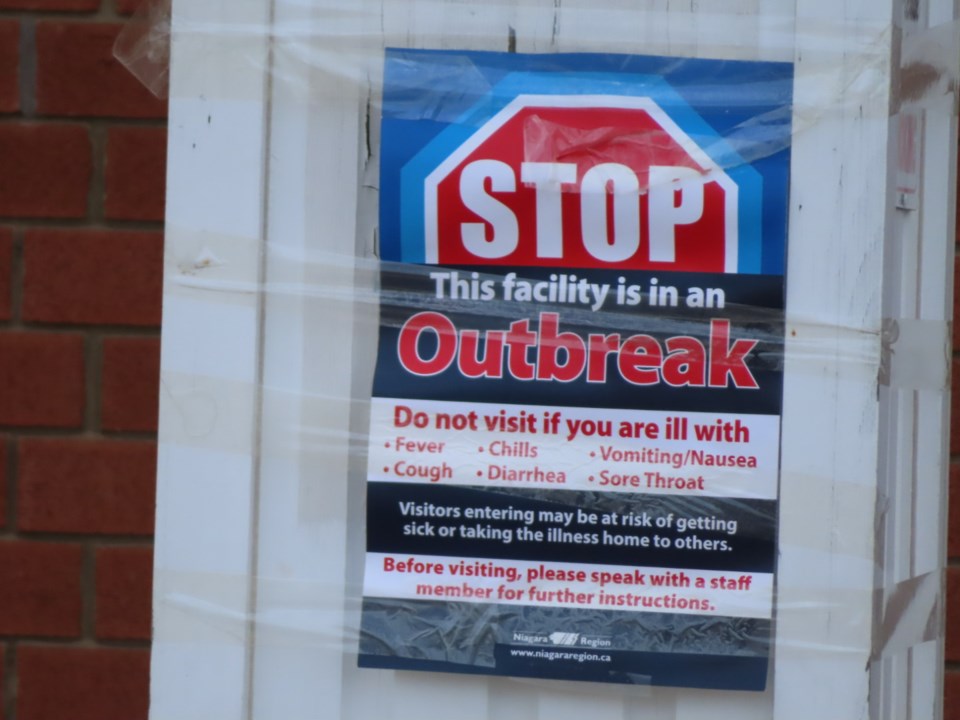A new article in the Canadian Medical Association Journal (CMAJ) discusses the ethics and concerns of disclosing the names of businesses where COVID-19 outbreaks have occurred. There is no uniform approach to this in Ontario since the decision is often left up to administrators of local health units.
The article noted there are different policies for larger cities such as Toronto and Hamilton.
The CMAJ article is titled "The balancing act of disclosing outbreaks of SARS-CoV-2 in workplaces.” It was published on Monday. The authors are Maxwell Tran, Adrina Zhong and Lawrence Loh; associated with the Temerty Faculty of Medicine and the Dalla Lana School of Public Health with the University of Toronto.
The article weighs the pros and cons of providing information to the public that could be seen as essential in letting a person make an informed decision on whether they want to visit a particular business, while at the same time weighing the right to privacy for a business that might have had two or three employees test positive for COVID-19 and were then sent home to self-isolate.
"When an outbreak of infection at a workplace is identified, standard public health practice is to publicly disclose the name of the workplace only if all contacts cannot be traced and a risk to the public is identified," was labelled as one of the key points in the article.
"Proponents of naming all workplaces with outbreaks regardless of risk to the public, assert that such a policy would increase transparency on where transmission is occurring, and enable workers and the public to protect themselves," was another key point in the article.
The article said there are "many reasons" for not publicly naming a workplace that has an outbreak; "the most prominent being people’s right to privacy.”
When there is no risk to the public, such as in an isolated or restricted workplace where the public has no access, the article said it is important to protect workers from stigma, public shaming and harassment that could be associated with COVID-19.
"Moreover, businesses that are outed as having an outbreak of infectious disease may face serious consequences that in turn may lead to loss of employment for workers and downstream effects for local economies," said the article.
Another possibility is that even though employers are mandated to contact their local health unit if they suspect an outbreak, the fear of adverse publicity or economic ruin might be enough for employers to keep their mouths shut, and send sick employees home.
The article said there is also an argument for letting employers know that the information provided to the public health unit will be respected.
"When businesses can trust that disclosures of workplace outbreaks are made with careful consideration and are appropriate and useful, they are more likely to cooperate with efforts of the public health agencies to control an outbreak by allowing rapid access and intervention to protect workers," said the article.
"In general, as in the physician–patient relationship, where respect for confidentiality supports trust that ultimately allows the provider to better promote the patient’s health, compliance by businesses with directions by public health agencies protects their workers and fosters healthier communities."
The article also cited employee safety as a key consideration in the discussion, especially in workplaces where employees are situated close together. The argument is that employees should know if there is an outbreak in the workplace, so they can take precautionary measures.
"Workplace safety has been an important focus of the COVID-19 pandemic response worldwide," said the article. "Essential workers, particularly those who cannot work from home and those who are precariously employed (e.g., temporary, contract or agency workers), are at increased risk for acquiring SARS-CoV-2. Workplaces have been associated frequently with outbreaks of COVID-19 and household transmission of SARS-CoV-2. Policies related to disclosing outbreaks at places of work are both contentious and misunderstood," the article continued.
In conclusion, the authors wrote that more collaboration is needed between public health agencies and workplaces to ensure that such things as paid sick leave and better infection controls come into play.
"Where a public risk related to a workplace outbreak is identified, broader public disclosure is certainly warranted. However, calls for automatic disclosure of all workplace-related COVID-19 outbreaks distract policy-makers from enacting measures that are likely to protect both essential workers and communities. These essential measures include collaborating with workplaces to implement and enforce infection control protocols, paid sick leave, protection from eviction, wage replenishment, and linguistically and culturally nuanced health and safety information," said the article.



